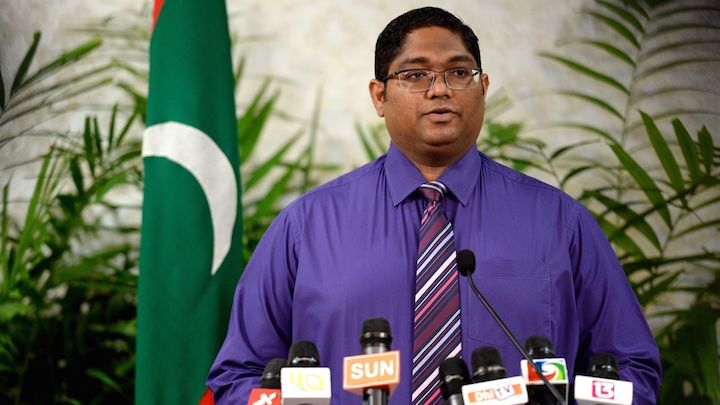Maldives declares state of emergency – as it happened
The declaration comes two days ahead of a mass protest planned by the main opposition Maldivian Democratic Party (MDP). Several constitutional rights and freedoms as well as the 2013 Freedom of Assembly Act has been suspended.

04 Nov 2015, 9:00 AM
President Abdulla Yameen has declared a nationwide state of emergency for 30 days effective 12:00pm today, citing threats to national security and public safety.
Announcing the unprecedented move, Attorney General Mohamed Anil said Yameen has issued an executive decree based on advice from the national security council, following the recent discovery of firearms and explosives.
The declaration comes two days ahead of a mass protest planned by the main opposition Maldivian Democratic Party (MDP). Yameen has banned protests and given the security forces sweeping powers to arrest suspects and conduct raids without warrants.
The constitutionally mandated 14-day notice before voting on a motion to impeach the president or vice president has also been shortened to seven days. The ruling party had submitted a motion to impeach Vice President Ahmed Adeeb on October 28.
Become a member
Get full access to our archive and personalise your experience.
Already a member?
Discussion
No comments yet. Be the first to share your thoughts!
No comments yet. Be the first to join the conversation!
Join the Conversation
Sign in to share your thoughts under an alias and take part in the discussion. Independent journalism thrives on open, respectful debate — your voice matters.

